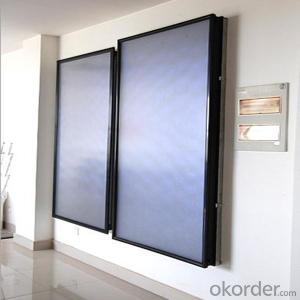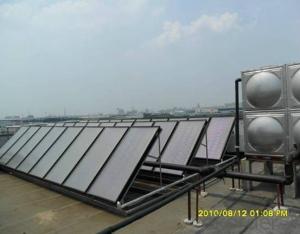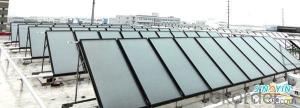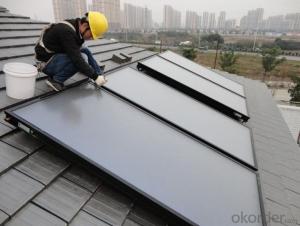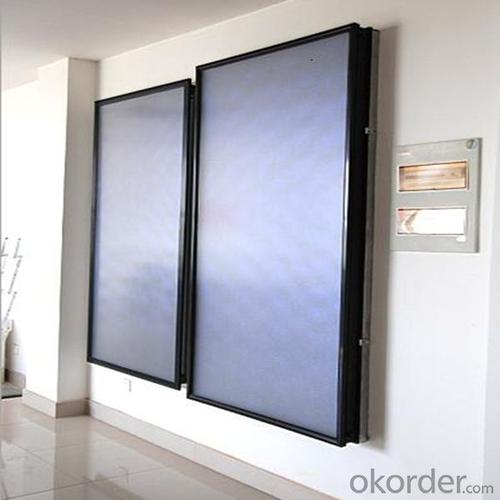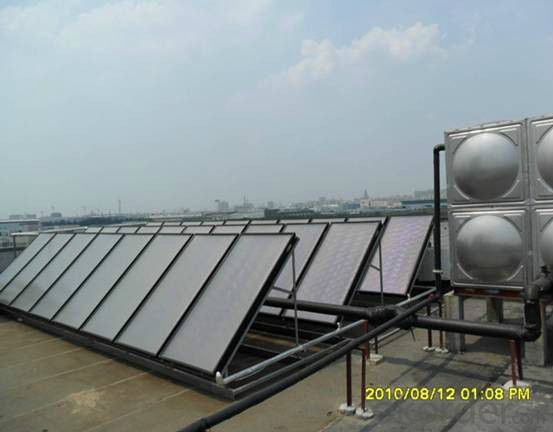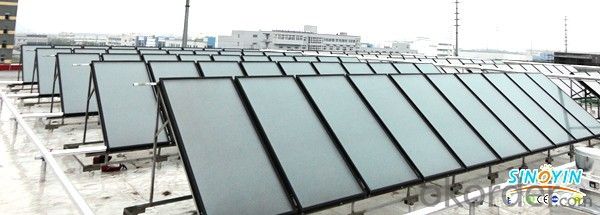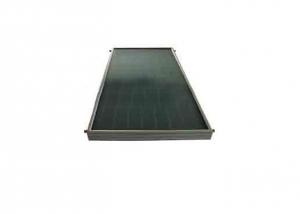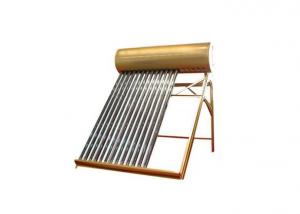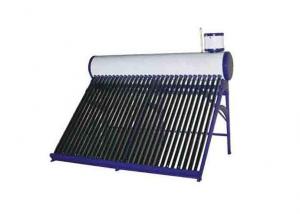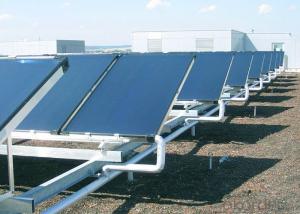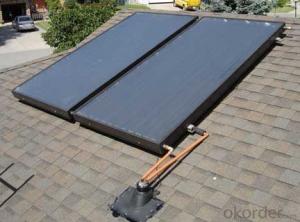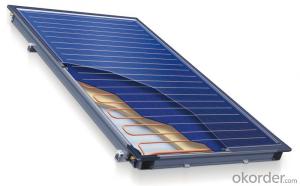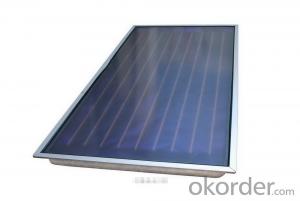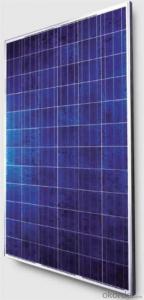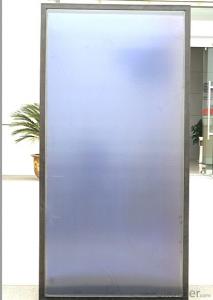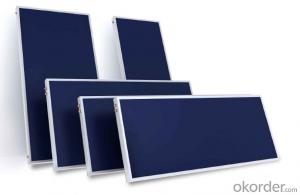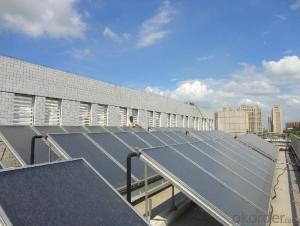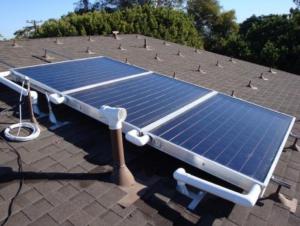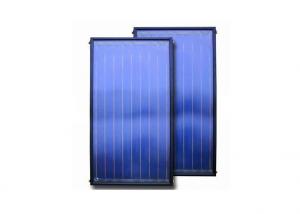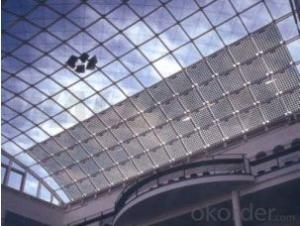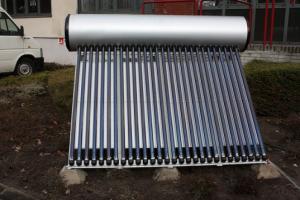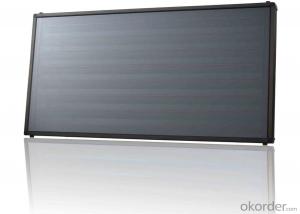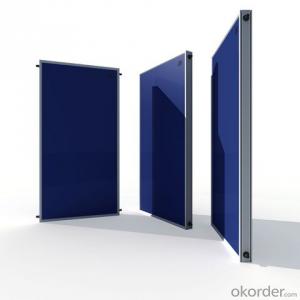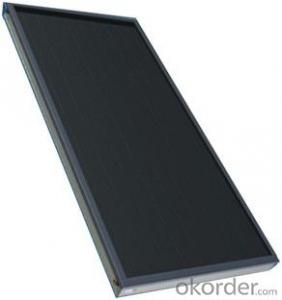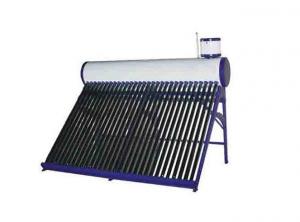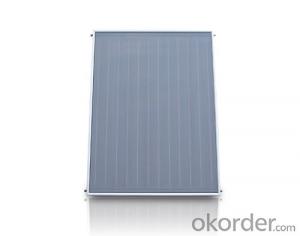RV Flat Plate Solar Collectors for Solar Energy
- Loading Port:
- Shanghai
- Payment Terms:
- TT OR LC
- Min Order Qty:
- 50 pc
- Supply Capability:
- 100000 pc/month
OKorder Service Pledge
OKorder Financial Service
You Might Also Like
Flat Plate Solar Collectors Solar Energy
The flat plate solar collectors is a kind of solar energy into heat energy, the heat generated can be used in everyday life hot water, heating, heating and industrial applications of low temperature hot water. Flat-plate collector is better than glass vacuum tube solar products in structure, strength and performance, its heat production performance, service life and structural strength considerably with building materials, is currently the world's solar thermal utilization products and building integrated fusion best , so the use of flat plate solar collectors is tantamount to the best choice.
The following is solar collectors’ advantages:
1) S-type tube flat plate solar collector, have gotten the line patent in China. Besides, we are Famous factory to produce S-type tube flat plate solar collector, no any welding on the tube, no any leakage.
2) Laser welding between whole absorber panel and copper tube, high strength thicken heavy duty aluminum frame, much better than some technology of ultrasonic welding or heat-conducting glue in some factories.
3) The instant heat efficiency of the collector can up to 81.1%, much higher than the 72% standard, very rare in China.
4) Germany imported high efficient selective blue titanium coating. Use best copper tubes in Domestic. The copper brand is Hai liang.
5) Special low-iron tempered glass with transmittance more than 92%.
6) Mechanical load, freeze resistance, rain penetration, exposure, hail impact, external and internal shock tested etc.
7) Long lifetime, large absorber area and good warm keeping, European, North America specially designed.
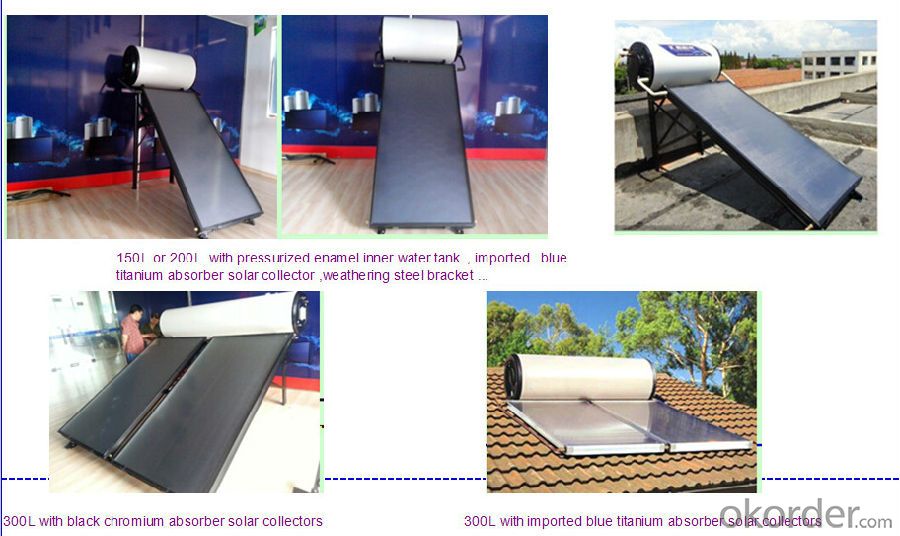
Solar wather heater components:
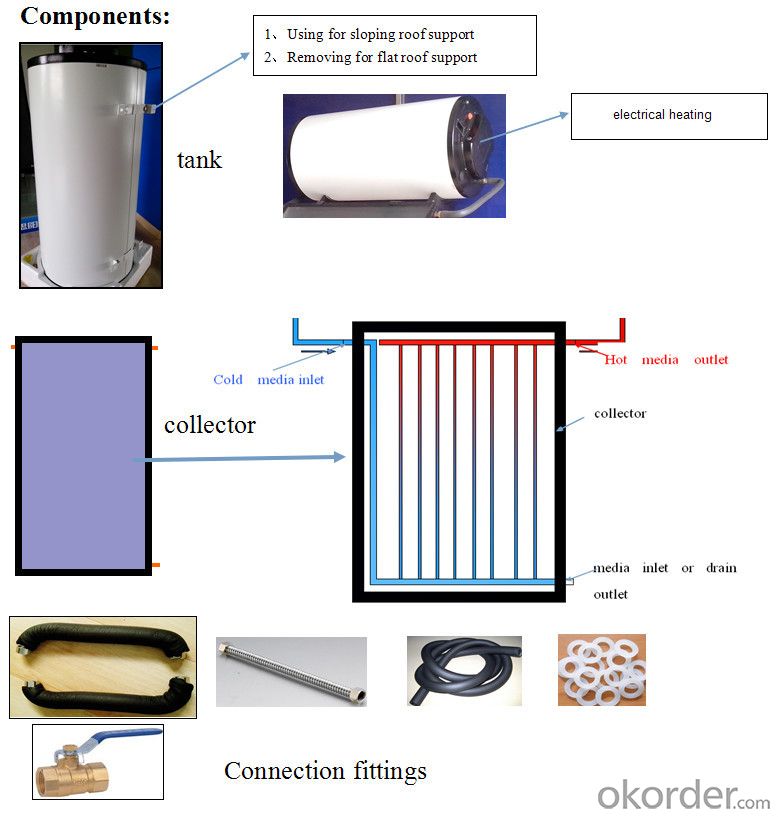
Flat Plate Solar Collectors installation:
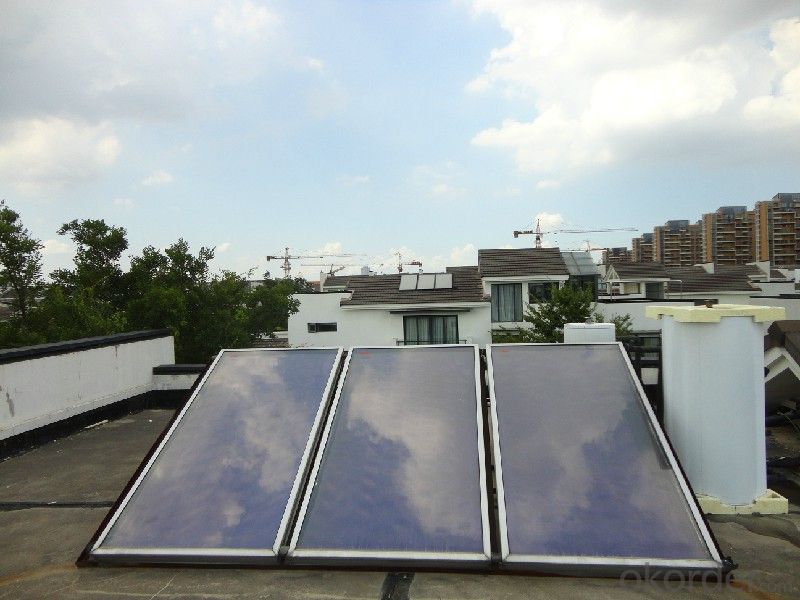
- Q: Can solar collectors be used for heating food in commercial kitchens?
- Yes, solar collectors can be used for heating food in commercial kitchens. Solar collectors, such as solar thermal panels or parabolic troughs, can efficiently capture and convert solar energy into heat. This heat can then be used to power various cooking appliances in a commercial kitchen, including ovens, stoves, and grills. By harnessing the power of the sun, commercial kitchens can reduce their reliance on fossil fuels and traditional energy sources, leading to cost savings and environmental benefits. Solar collectors can provide a renewable and sustainable solution for heating food, especially in regions with abundant sunlight. However, it is important to note that the implementation of solar collectors for commercial kitchens might require careful planning and consideration. Factors such as the availability of sunlight, the size and capacity of the solar collectors, and the energy demands of the kitchen need to be taken into account to ensure the system meets the required heating requirements. Moreover, solar collectors might not be suitable for all food preparation processes in a commercial kitchen. They are better suited for tasks that require lower or moderate heat, such as simmering, boiling, or slow cooking. For high-temperature cooking methods like frying or searing, additional conventional heat sources may still be necessary. In conclusion, solar collectors can indeed be used for heating food in commercial kitchens, offering a sustainable and renewable alternative to traditional energy sources. However, careful planning and consideration of specific needs and requirements are essential to ensure the successful integration of solar heating systems in commercial kitchen operations.
- Q: Can solar collectors be used for generating electricity on electric cars?
- Solar collectors have the ability to generate electricity for electric cars. Integrating solar panels or collectors onto electric vehicles is becoming more popular in order to increase the battery's range and efficiency. These solar panels are typically placed on the car's roof or hood and are able to capture sunlight and convert it into electricity. This electricity can then be used to power different electrical components of the car, reducing the dependence on the main battery. Although the amount of electricity generated by solar collectors on a moving vehicle is relatively small, it can still contribute to extending the electric car's range and decreasing overall energy consumption. Furthermore, when the vehicle is parked or not in motion, the solar collectors can continue producing electricity, which can be used to charge the battery or operate other systems. However, it is important to note that the effectiveness and efficiency of solar collectors on electric cars can vary depending on factors such as the panel size, sunlight angle, and overall vehicle design. Nevertheless, the utilization of solar collectors on electric cars shows promise in further harnessing renewable energy and improving the sustainability of transportation.
- Q: How long does it take for solar collectors to pay for themselves?
- The payback period for solar collectors can vary depending on factors such as the initial cost, energy usage, and local incentives. On average, it typically takes around 5 to 15 years for solar collectors to pay for themselves through energy savings and potential government incentives.
- Q: Can solar collectors be integrated into building design?
- Yes, solar collectors can be integrated into building design. They can be incorporated into the building's architecture, such as being installed on roofs or facades, to capture sunlight and convert it into usable energy. This integration allows for the efficient utilization of solar power while minimizing the visual impact of traditional solar panel installations.
- Q: Can solar collectors be used for heating airports and transportation hubs?
- Yes, solar collectors can be used for heating airports and transportation hubs. Solar thermal systems can generate heat by capturing and utilizing solar energy, which can be used for space heating, water heating, and even heating of large buildings and facilities such as airports and transportation hubs. This renewable energy source can help reduce reliance on fossil fuels, lower carbon emissions, and contribute to a more sustainable and environmentally friendly heating solution for these high-energy consumption areas.
- Q: Can solar collectors be used for drying pet products?
- Solar collectors can indeed be utilized for the purpose of drying pet products. These collectors, known as solar dryers or solar dehydrators, harness the power of the sun to warm the air and subsequently desiccate the items contained within. A wide range of pet products, comprising pet food, treats, toys, and bedding, can be effectively dried using these devices. Solar drying boasts both environmental and economical benefits, as it operates without the need for electricity or gas. Furthermore, this method aids in maintaining the nutritional value and overall quality of the pet products, rendering it a favorable choice for both pet owners and those involved in the pet industry.
- Q: Can solar collectors be used for heating hotels and resorts?
- Yes, solar collectors can be used for heating hotels and resorts. Solar thermal systems can be installed to capture and utilize the sun's energy for heating water and air, reducing the dependence on traditional heating systems and lowering energy costs. This environmentally friendly solution can be especially beneficial for hotels and resorts with large hot water demands, swimming pools, and space heating requirements.
- Q: What is the optimal orientation for solar collectors?
- The optimal orientation for solar collectors is typically facing south in the northern hemisphere and facing north in the southern hemisphere. This allows them to receive the maximum amount of sunlight throughout the day. However, the specific optimal orientation may vary depending on factors such as the latitude of the location and the desired purpose of the solar collectors.
- Q: Can solar collectors be used in grid-tied systems?
- Yes, solar collectors can be used in grid-tied systems. In a grid-tied system, solar collectors are used to harness the energy from the sun and convert it into electricity. This electricity can then be used to power household appliances, lighting, and other electrical devices. The excess electricity generated by the solar collectors can be fed back into the grid, allowing the homeowner to receive credits or payments from the utility company. Grid-tied systems with solar collectors are a popular choice for homeowners looking to reduce their dependence on fossil fuels, lower their electricity bills, and contribute to a more sustainable energy future.
- Q: Can solar collectors be used in data centers?
- Yes, solar collectors can be used in data centers. Solar collectors can be installed on the rooftops of data centers to harness solar energy and convert it into electricity. This renewable energy source can help offset the power consumption of data centers, reducing their reliance on traditional electrical grids and contributing to a more sustainable and environmentally-friendly operation.
Send your message to us
RV Flat Plate Solar Collectors for Solar Energy
- Loading Port:
- Shanghai
- Payment Terms:
- TT OR LC
- Min Order Qty:
- 50 pc
- Supply Capability:
- 100000 pc/month
OKorder Service Pledge
OKorder Financial Service
Similar products
Hot products
Hot Searches
Related keywords
